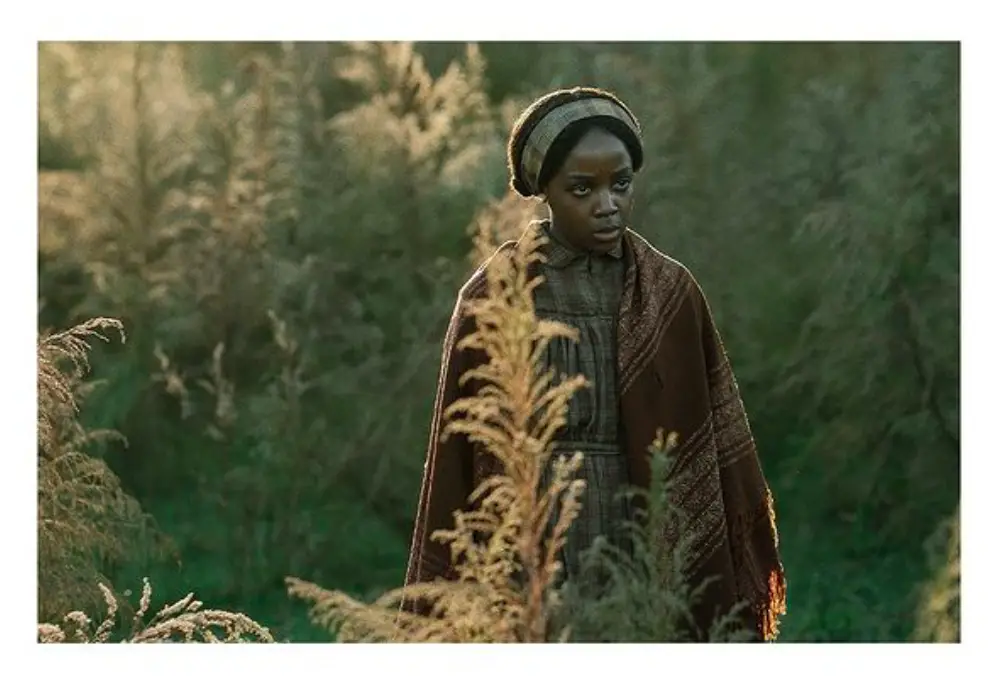Earlier this year, Amazon Prime released a 10-episode series titled “The Underground Railroad.” The show follows a woman named Cora as she escapes from a Georgia plantation in pursuit of freedom. During her journey north, she discovers that the seemingly metaphorical underground railroad is actually a real railroad system run by abolitionists. This series is the most recent in what appears to be a consistent stream of releases of movies or television shows revolving around slavery. The 2020 release of “Antebellum” plucked Veronica Henley (played by Janelle Monáe) from the present day and dropped her in the center of the Antebellum South. The year before that came the retelling of Harriet Tubman’s story with the release of “Harriet.”
While each of these productions serves a purpose within themselves, the constant retelling of their ancestors’ bondage is a story that Black Americans all know too well, which begs the question: Who within the Black community is rushing to watch these movies anymore and why are they being created?
One reason why movies about slavery may seem to cater to such a specific audience may be the result of a difference in perspectives between generations. Different generations of Black people have seen Blackness depicted in different ways on television and in movies. In turn, the varying depictions affect how each generation might view movies centered on the enslavement of their ancestors.
Black people born in the mid-20th century saw themselves reflected in films such as “Gone With the Wind” and “Song of the South,” neither of which included progressive portrayals of Black people. Such representations are the result of Black characters not receiving the chance to become complete, well-rounded and realistic characters — they were instead a mixture of stereotypes meant to entertain and appease a white audience. Yet during this time, the mere depiction of a Black person in a movie was progressive in itself. People of this generation may be less likely to question what seems like a never-ending deluge of movies about slavery. They’re coming from a time in which, during their most formative years, the concept of seeing Black people on screen was a feat on its own.
People born in the 1970s or later grew up watching television shows that contrasted greatly from the shows viewed by the generations before them. While some sitcoms such as “A Different World” and “That’s So Raven” were riddled with their own problems and blatant ignorance of more contemporary social issues, they depicted Black people as overall successful and happy individuals.
The characters in later shows were portrayed as real people with goals and aspirations, distinguishing themselves from depictions of slaves who were overjoyed with the life they had on the plantation or of maids who feared the outbursts of an erratic mistress. A portrayal of Blackness in which being successful and living comfortably was better guaranteed may have shaped the way in which people from later generations would react to movies about slavery as well.
As far as why movies about slavery are created, the easiest response seems to be that they serve a certain educational purpose. While they may fulfill that purpose to some degree, this then calls into question who the movies are meant to educate. If such movies seek to educate Black people on their own history, there would seemingly be less eagerness to create a horror show centered on grotesque demonstrations of violence as a reflection of the Antebellum South.
More often than not, these movies strip enslaved characters of any sort of humanity and render them as mere objects that are subject to the whims of a larger system. While it can be argued that the objectification of people is indeed the nature of slavery, there is a greater onus on the directors, screenwriters and producers of today to retell the story of slavery in a realistic manner that neither sanitizes the experience nor objectifies the people involved. There should be a greater effort to keep the humanity of any enslaved characters intact.
The same is true even if the movies are intended to educate a white audience. Movies that strip enslaved characters of their humanity do nothing to contribute to a better understanding of slavery in America. They act only as another avenue for people to capitalize on the pain of the Black community and the abuse that their ancestors suffered. If people desire to watch Black people in pain, they need only to turn on their local news station rather than pay to watch a movie about slavery.
With that said, movies and shows that discuss and portray slavery realistically while preserving the humanity of enslaved people are important and productive works that have a place in American film and television. The presence of movies revolving around slavery may earn a greater appreciation among younger generations if they are balanced with movies about successful Black people living and flourishing in today’s world. Achieving a balance between both kinds of movies is crucial if the volume of films centered around slavery is to be justified in any way.
However, movies and television shows that feature a Black protagonist in an unproblematic way are seriously lacking in entertainment. Most television shows revolving around a Black protagonist frame them in one of two ways: a Black person who is of a mixed racial background and battles with extreme identity issues, or a darker-skinned Black person whose sole purpose is to experience struggle and pain. On the off chance that the protagonist falls into neither category, their story is still centered on the specter of their ancestors’ struggles that haunts every waking moment of their life.
While there are larger social structures that play into the retelling of such tropes, it’s not an unreasonable request to move past them and produce a better representation of the diversity present within the Black community today. Black people deserve to see their entire reality reflected in television and movies, not just their struggles.

















